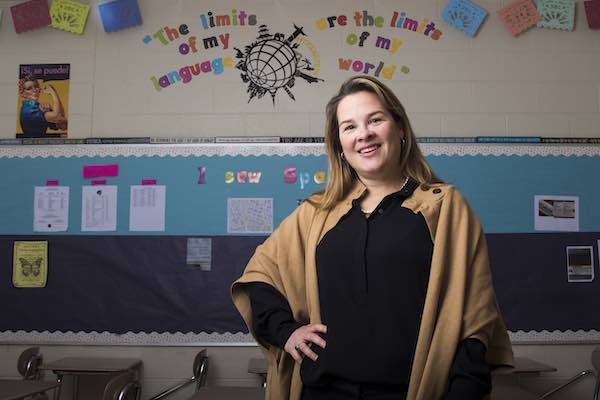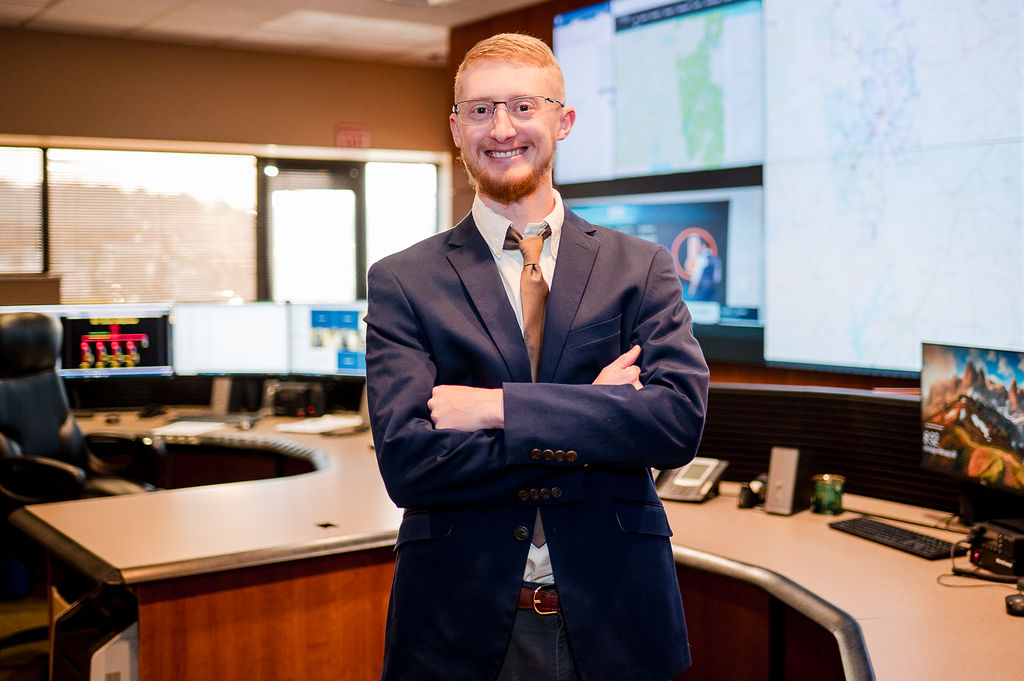
From giving cultural lessons to joining their lunch table conversation, Jennifer Schelp has no limitations for providing her students with the best educational experience possible.
A University of West Georgia alumna with a master’s degree in Spanish language teacher education, Schelp is a Spanish teacher at Carrollton Junior High School (CJHS). She was recently nominated for the LifeChanger of the Year Award as a result of her notable influence on students in the classroom.
Sponsored by the National Life Group Foundation, this national award honors K-12 school educators and staff who are making positive impacts in students’ lives and exemplify excellence and outstanding leadership skills.
“I am so honored by having been bestowed with such recognition,” she said of being nominated. “I truly am a fortunate teacher to work alongside such extraordinary individuals at Carrollton Junior High School.”
Schelp reflected on the courses and people at UWG that better prepared her for her career field.
“Learning the history of Spain and getting more exposure to classical and modern Spanish literature gave me greater knowledge and more tools to use in educating my students,” she recalled. “I had one specific professor, Dr. Andres Echarri, who went above and beyond for his graduate students. I am grateful to have had a professor who cared so much for his students and wanted them to succeed. I am a product of that influence.”
Schelp was destined to become a Spanish teacher. Coming from Puerto Rico to Georgia, she studied to be an English for Speakers of Other Language (ESOL) teacher. By teaching English in Puerto Rico, she utilized teaching strategies in a foreign language.
“Teaching a foreign language sort of fell into my lap,” Schelp said. “When a job opportunity within the school system I was already working for had a Spanish teaching position at CJHS, I decided to make the shift from ESOL to Spanish.”
In addition to teaching the linguistics of Spanish, Schelp includes lessons about Hispanic culture and heritage. She tells her students that learning a language is so much more than just learning words — it’s also about why and how people use the words.
“I love to share customs about the Hispanic culture with students, particularly because it allows me to share more about myself,” Schelp shared. “Expressing myself – using certain words and how I say them – allows me to showcase my Hispanic culture with my students, and that alone is a great cultural lesson.”
Outside the classroom, Schelp manages to continue building positive relationships with her students by supporting their extracurricular activities. She frequently attends sports games and recitals, makes positive parent phone calls, sends postcards home and more.
“Students need you to back up what you say with your actions,” she explained. “I spend a lot more of my time reaching out and showing my students I mean what I say when I’m outside the classroom. I truly love spending time with them.”
Schelp encourages students pursuing a career in education to believe that they can inspire others. She explains the best future educators should be intelligent, reasonable, malleable, eager, positive and caring. Having these qualities will help educators appreciate diversity in the classroom.
“In order to be ambassadors of the world and the foreign language world, we must be able to relate and show compassion and understanding to our diverse population while encouraging them to reach their fullest potential,” she concluded.





